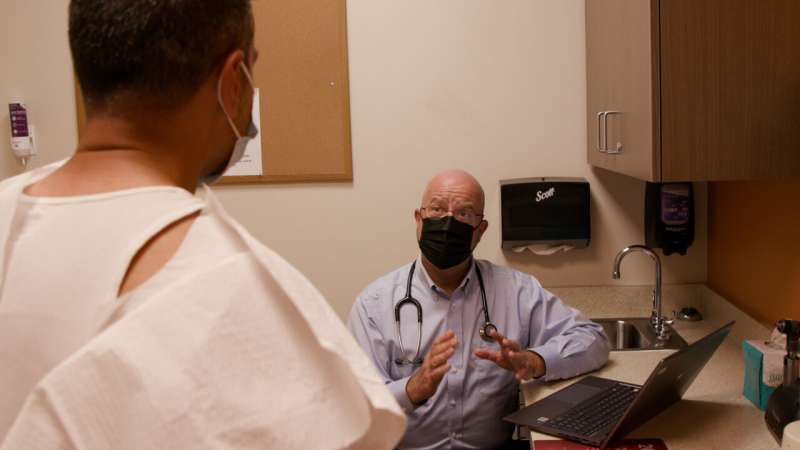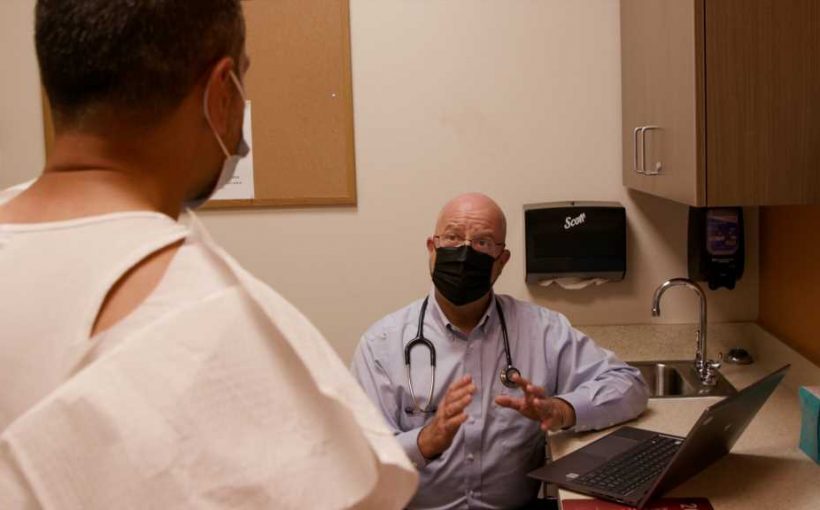
We all know we should eat well and exercise to stay healthy, but a new national survey conducted online by The Harris Poll on behalf of Orlando Health finds an alarming number of men might be skipping a simple yet critical step in a healthy lifestyle: an annual checkup with their doctor. The survey found a third of men (33%) don’t think they need annual health screenings and almost two-thirds (65%) believe they are naturally healthier than others in general.
“It is statistically impossible for the majority of men to be healthier than the majority of men,” said Thomas Kelley, MD, family medicine specialist at Orlando Health Physician Associates. “Even if you think you’re healthy and you’re not experiencing any symptoms, there can be developing issues that often go unnoticed and can also be life-threatening if left unchecked. Some of those include rising blood pressure that can be a ticking time bomb for a heart attack or stroke, as well as colon cancer, which is one of the most deadly yet preventable cancers that exist.”
As a primary care physician, Dr. Kelley has heard every excuse for men skipping their appointments, but he says the underlying reason for avoiding the doctor’s office is often fear.
“If you’re a man and you haven’t been to the doctor in a while, you don’t really know what to expect.” Kelley said. “One of the big things that makes it less scary is having that great relationship with a primary care physician, and most men find the process to be easier than they thought. It takes about half an hour and by the end of the appointment you have the big picture about where you stand, what you’re at risk for and what you need to do for your health in the future.”
While that first appointment back can be nerve-racking, Kelley says building trust with your doctor can help make conversations more comfortable and is what keeps many patients coming back year after year.
But before doctors can build that relationship, they need to get patients in the door. The survey found that 38% of men often get medical advice from social media, which can be extremely problematic if they are not referencing reputable medical sources. Nearly two in five men (38%) also admit that they tend to focus on their pet’s health more than their own, something that is not surprising to Dr. Kelley.
“Men tend to put their health last after their family, and apparently even after their dog or their cat,” Kelley said. “But in order to take care of others in your life, you first have to take care of yourself, and that includes making that yearly appointment with your primary care doctor.”
It’s a message that Dexter Grant, 34, finally heard loud and clear after 15 years without a check-up with his doctor.
“I went all of my adult life up to this point without a check-up, something I certainly do not recommend to anyone,” Grant said. “In your 30s you start to worry that every ache and pain could be the thing that takes you out, but you can’t just avoid the issue out of fear of what your doctor is going to tell you.”
With a clean bill of health, Grant is relieved to know that he is as healthy as he feels. He worked with his doctor on clear action steps for the future, which will always include an annual wellness exam.

“Just having the peace of mind that there aren’t any lingering issues that can cause serious problems in the next year makes me a lot more confident that I’m on the right path,” Grant said. “The process was surprisingly easy, and after a quick exam and some routine blood work, my first thought was that I should have done this a long time ago.”
It’s never too late to get caught up on routine appointments and screenings, but Kelley says the sooner you can take control of your health, the better. Combining annual exams with things like exercising regularly, keeping your diet in check, drinking plenty of water and finding ways to reduce stress can make a big difference in your overall health.
“It’s much easier to go to the doctor once a year for a wellness checkup and make certain that you’re not developing diabetes, high blood pressure or a heart problem, than to find yourself in an intensive care unit needing heart bypass surgery because you didn’t look into those things,” Kelley said.
Survey Method:
Source: Read Full Article
